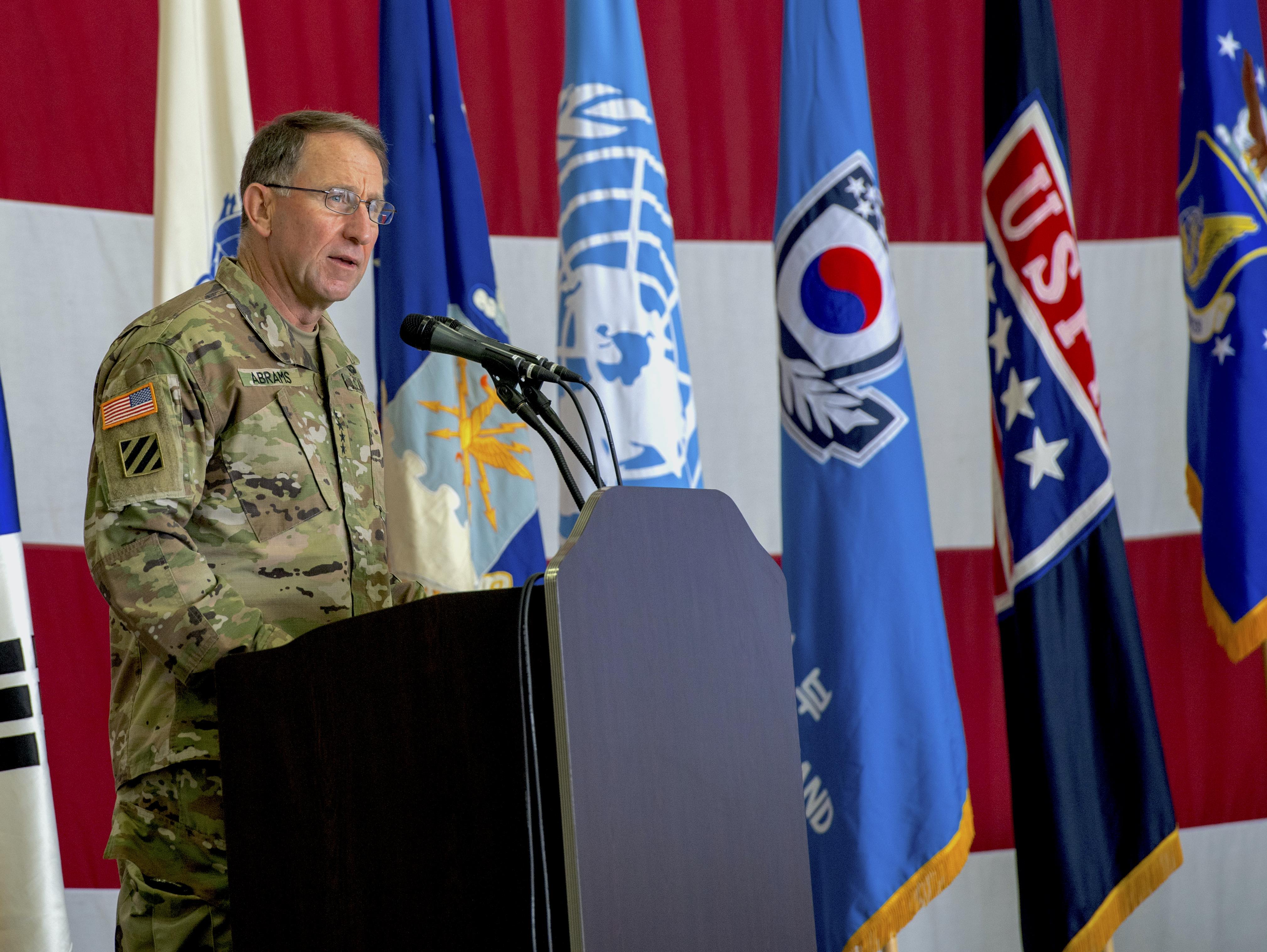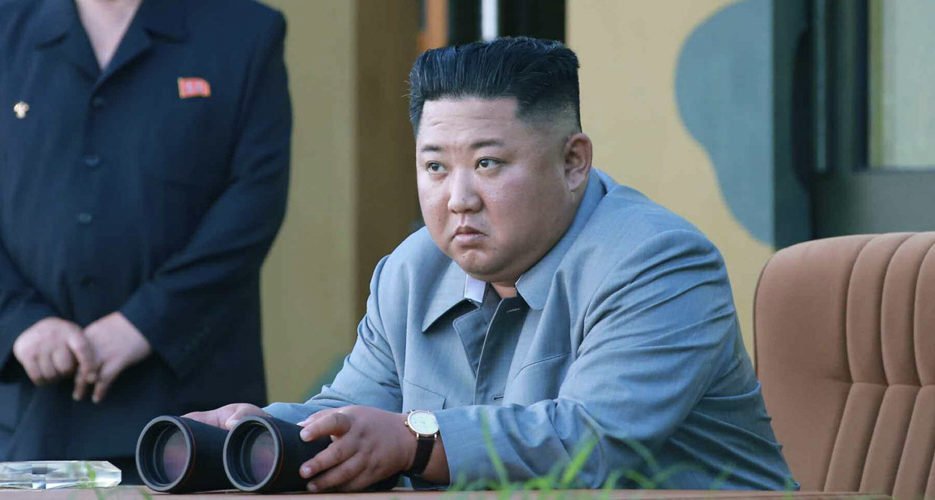
North Korea is not showing any signs of lashing out against South Korea or Japan or launching a deliberate provocation as the American presidential election nears, the senior commander on the peninsula said Thursday.
Army Gen. Robert Abrams, speaking in a Center for Strategic and International Studies online forum, said “we’re not seeing any sign of regime instability” as North Korea confronts the threat of COVID-19 that sharply curtailed its trade with China, recovers from three typhoons this year and remains under severe U.N. economic sanctions.
North Korean leader Kim Jong-un’s regime “is focused on getting their country back together.” Abrams, commander of U.S. Forces Korea, said as harsh as conditions are now, they do not compare to the widespread famine that Kim’s father faced in the mid-1990s.
Along the Demilitarized Zone between the two Koreas, “the reduction in tensions is palpable” from earlier this year. Abrams remained hopeful that some type of negotiations over Pyongyang’s nuclear and missile programs could resume between the North and South or between the United States and North Korea.
The talks between the United States and the North over Pyongyang’s nuclear and missile programs have been on hold for months.
Speaking in the same event, Sue Mi Terry, a CSIS Korea specialist, said, “the threat remains” from the North Korean nuclear weapons stockpile and the country’s sophisticated ballistic and cruise missiles. Those facts require ready South Korean and American forces to deter any rash actions by Kim.
While the readiness of American, South Korean and U.N. forces remains high, Abrams expressed concern over his recent inability to have aviation units — fixed wing and vertical — participate with company-level ground forces in live-fire exercises. “The bottom line focus [is we] have to have company-level live-fire training. … It’s essential” with aviation units participating, he said.
For now, Army helicopter units and Air Force squadrons are receiving live-fire training “off Peninsula.”
A key reason for the shift has been “encroachment” on training ranges and complaints from civilians near those ranges about live-fire exercises on the peninsula, he said.
As for theater-level exercises, Abrams said the headquarters part worked this year with “training scenarios into the 21st century” that included cyber, space and gray zone cases. “We’re in good shape” and “have not hit the pause button” for those exercises even with the pandemic, he said.

Abrams said the headquarters exercises could continue “side by side” because the command imposed strict measures on arriving American forces and families and conducted double-testing as the quarantine ended. There also was wide-ranging cooperation between Korean health officials and the command over workers coming onto the installations and service members and others leaving.
He dated the extensive coordination back to late January “when we could see what was coming out of China” as the virus spread through its population. The last positive COVID-19 case for a service member stationed in Korea was recorded in April.
The large-scale field and naval exercises, however, remain on hold since President Donald Trump and Kim met in Singapore two years ago to discuss denuclearizing the peninsula.
Looking at the alliance’s strength, Abrams said, “we’ve had some dark patches before,” but “over 67 years, when in doubt, the alliance always wins.”
“The ROK-U.S. military alliance is truly one of a kind.” Abrams called it “typhoon-proof,” “COVID-19-proof and willing to say earthquake-proof.”
Looking ahead to the possibility of former Vice President Joseph Biden getting elected, Terry said the North Koreans likely “will have to dial up the pressure” to remind American policy-makers they are a nuclear power.
Victor Cha, director of the center’s Korea programs, said North Korea’s usual response to U.S. presidential elections “is to poke the new administration in the eye,” as it did when Trump took office in 2017. His administration’s response was to deliver “fire and fury” if Kim threatened American forces on the peninsula or the United States itself with nuclear attack.
“If we don’t see that [kind of provocation], there’s something wrong in Pyongyang,” Cha said, referring to the impact of the pandemic on North Korea’s health system, its already threatened food supply and its contracting economy, which has caused the regime to concentrate on domestic stability.





